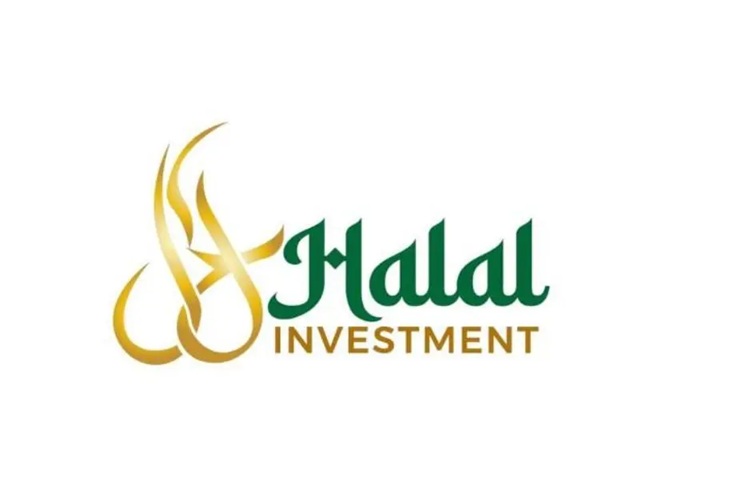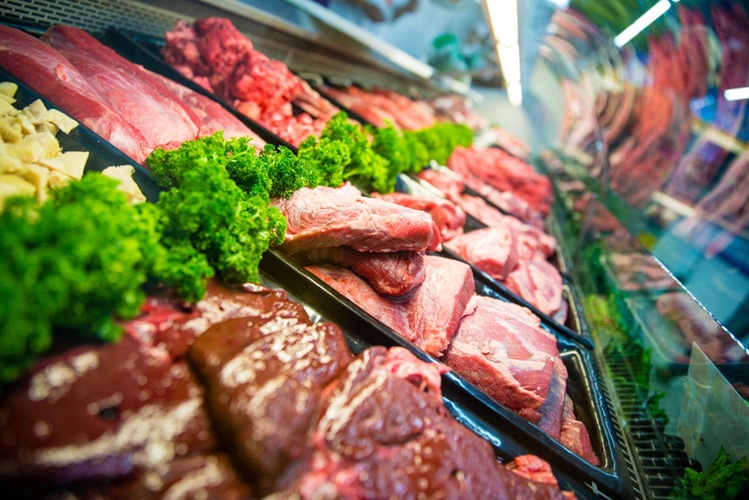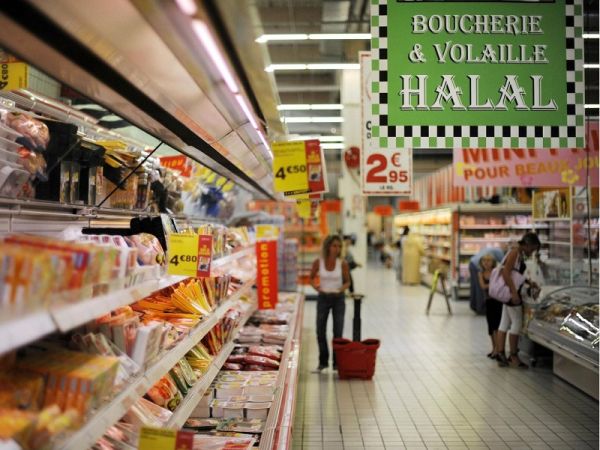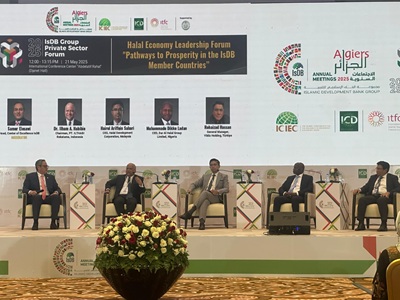Maeeshat News Network | Mumbai
The global halal market, encompassing products and services compliant with Islamic Sharia law, is a dynamic and rapidly expanding sector, valued at USD 7.7 trillion in 2025 and projected to reach USD 10 trillion by 2030. For halal investors in India—those seeking Sharia-compliant investment opportunities—the halal market presents a critical avenue for economic growth, ethical investing, and social impact. With India’s significant Muslim population, robust export capabilities, and growing domestic demand for halal products, the market offers unique opportunities for investors committed to aligning financial returns with religious and ethical values. This article explores why the halal market is vital for halal investors in India, highlighting its economic potential, alignment with Islamic principles, and strategic importance in 2025.
The Global and Indian Halal Market Landscape
The halal market spans food and beverages, pharmaceuticals, cosmetics, tourism, and Islamic finance, driven by a global Muslim population of 1.9 billion, expected to reach 2.76 billion by 2050. The halal food sector, valued at USD 2.71 trillion in 2024, dominates with a projected growth to USD 4,569.69 billion by 2030 at a 9.56% CAGR. Other segments, such as halal pharmaceuticals and tourism, are also expanding, with global Muslim travel spending forecasted to hit USD 283 billion by 2022.
In India, home to 200 million Muslims (14.2% of the population), the domestic halal market is growing steadily, driven by rising awareness and demand for certified products. India’s halal food market alone is estimated at USD 25 billion in 2025, fueled by urban consumers and a burgeoning middle class. Additionally, India is a global leader in halal meat exports, particularly buffalo meat, with USD 3.2 billion in export revenue in 2024, targeting Muslim-majority countries like Saudi Arabia, UAE, and Indonesia.
For halal investors—those adhering to Sharia principles that prohibit interest (riba), speculative investments (gharar), and non-halal activities—the halal market offers a compliant and lucrative investment landscape. The sector’s alignment with ethical, sustainable, and transparent practices makes it particularly appealing in India’s diverse economic ecosystem.
Economic Opportunities for Halal Investors
1. High-Growth Potential
The halal market’s rapid growth presents significant opportunities for Indian investors. The global demand for halal food, driven by Muslim-majority countries in the Middle East and Southeast Asia, aligns with India’s position as a top exporter of halal meat and agricultural products. Companies like Allanasons Pvt. Ltd., Al Kabeer Exports, and Hind Agro Industries, which generated combined revenues of over USD 1.5 billion in 2024, demonstrate the sector’s profitability. Investing in these firms or their supply chains—slaughterhouses, processing units, or logistics—offers halal investors stable returns in a high-demand market.
The domestic market also holds promise. With India’s Muslim population projected to grow to 310 million by 2050, demand for halal-certified products, from packaged foods to cosmetics, is rising. Startups like Halal India and Zaheeruddin Corporation are capitalizing on this trend, offering opportunities for venture capital investments in Sharia-compliant businesses.
2. Diversification Across Sectors
The halal market’s diversity allows investors to spread risk across multiple industries. Beyond food, halal pharmaceuticals and cosmetics are gaining traction. India’s pharmaceutical industry, a global leader, is increasingly adopting halal certification for vaccines and medicines, with companies like Biocon exploring this niche. The halal cosmetics market, driven by brands like IBA Halal Care, is growing at 12% annually, appealing to both Muslim and non-Muslim consumers for its ethical formulations.
Halal tourism, though nascent in India, offers untapped potential. Investments in halal-friendly hotels, travel agencies, and dining facilities in states like Kerala and Hyderabad could cater to domestic and international Muslim tourists, mirroring success in markets like Malaysia and Turkey.
3. Export-Driven Revenue
India’s halal exports, particularly to OIC countries, are a cornerstone of its economic contribution. The India Conformity Assessment Scheme (I-CAS) – Halal, updated in 2024, ensures compliance with international standards, boosting exports to Saudi Arabia (USD 1.2 billion in 2024) and Indonesia. Halal investors can fund export-oriented firms or logistics providers, capitalizing on India’s competitive pricing—20-30% lower than Brazil or Australia—and proximity to Middle Eastern markets.
Alignment with Sharia Principles
The halal market is inherently Sharia-compliant, making it a natural fit for halal investors. Investments in halal food, pharmaceuticals, and cosmetics avoid prohibited (haram) elements like pork, alcohol, or unethical practices, aligning with Islamic ethical standards. The sector’s emphasis on transparency, as seen in blockchain-based traceability systems adopted by Indian exporters like Allanasons, ensures compliance with Sharia’s prohibition of uncertainty (gharar).
Islamic finance, a USD 620 billion segment globally, complements the halal market. In India, institutions like Tata Ethical Fund and Taurus Ethical Fund offer Sharia-compliant investment options, enabling investors to channel funds into halal-certified businesses without engaging in interest-based transactions. These funds have seen a 15% increase in assets under management in 2024, reflecting growing investor confidence.
The halal market’s focus on ethical sourcing and sustainability also resonates with Islamic values of stewardship (khalifa) and social responsibility. For instance, Indian companies investing in humane slaughter practices and eco-friendly packaging align with both Sharia principles and global consumer trends, enhancing their appeal to halal investors seeking ethical returns.
Strategic Importance in India
1. Economic Empowerment of Muslim Communities
Investing in the halal market empowers India’s Muslim population, which faces socio-economic challenges. The industry employs over 2 million people, particularly in rural areas of Uttar Pradesh and Maharashtra, where meat processing and agriculture are key livelihoods. Halal investors can support job creation by funding cooperatives, training programs for halal auditors, or startups in underserved regions, fostering economic inclusion.
2. Strengthening India’s Global Position
India’s role as a halal export leader enhances its geopolitical influence in the Muslim world. Investments in certification bodies like Halal India Certification or infrastructure like cold storage facilities strengthen India’s supply chain, ensuring it remains competitive against rivals like Brazil. Halal investors can drive this growth by funding technological innovations, such as IoT for supply chain monitoring, which Indian firms adopted in 2024 to meet OIC standards.
3. Domestic Market Expansion
The growing awareness of halal certification among Indian consumers, particularly in urban centers like Mumbai and Hyderabad, creates a robust domestic market. Halal investors can fund e-commerce platforms like HalalCart, which saw a 20% sales increase in 2024, or support local brands expanding into halal snacks and beverages. This not only meets consumer demand but also builds brand loyalty among India’s Muslim population.
Challenges and Mitigation Strategies
Halal investors face challenges, including inconsistent global certification standards, which increase compliance costs. India’s collaboration with JAKIM (Malaysia) and BPJPH (Indonesia) mitigates this by harmonizing standards. Domestic political sensitivities around cattle slaughter, particularly in northern states, can disrupt supply chains. Investors can diversify into poultry, seafood, or plant-based halal products to reduce reliance on beef exports.
Competition from countries like Australia, with larger-scale operations, is another hurdle. Indian investors can counter this by funding R&D in value-added products, such as halal-certified frozen meals, which saw a 10% export increase in 2024. Awareness campaigns to educate non-Muslim consumers about halal’s ethical benefits can also expand the market, as seen in Europe, where halal sales grew 8% among non-Muslims in 2024.
Opportunities for Growth
The halal market’s alignment with global sustainability trends offers opportunities for innovation. Indian investors can fund startups developing plant-based halal foods or biodegradable packaging, tapping into the USD 100 billion global sustainable food market. Partnerships with Middle Eastern firms, as seen in Al Kabeer’s 2024 Saudi joint venture, provide avenues for co-investment. Additionally, India’s participation in events like the World Halal Summit 2024 has boosted visibility, attracting foreign direct investment into its halal sector.
The halal market is critical for halal investors in India due to its economic potential, alignment with Sharia principles, and strategic importance. With a growing domestic and export market, opportunities in diverse sectors, and a focus on ethical practices, the industry offers a compelling case for investment. By supporting companies, startups, and infrastructure that drive India’s halal ecosystem, investors can achieve financial returns while uplifting communities and strengthening India’s global standing. As the halal market continues its upward trajectory, Indian halal investors are uniquely positioned to shape its future, fostering a legacy of ethical and sustainable growth.






0 Comments